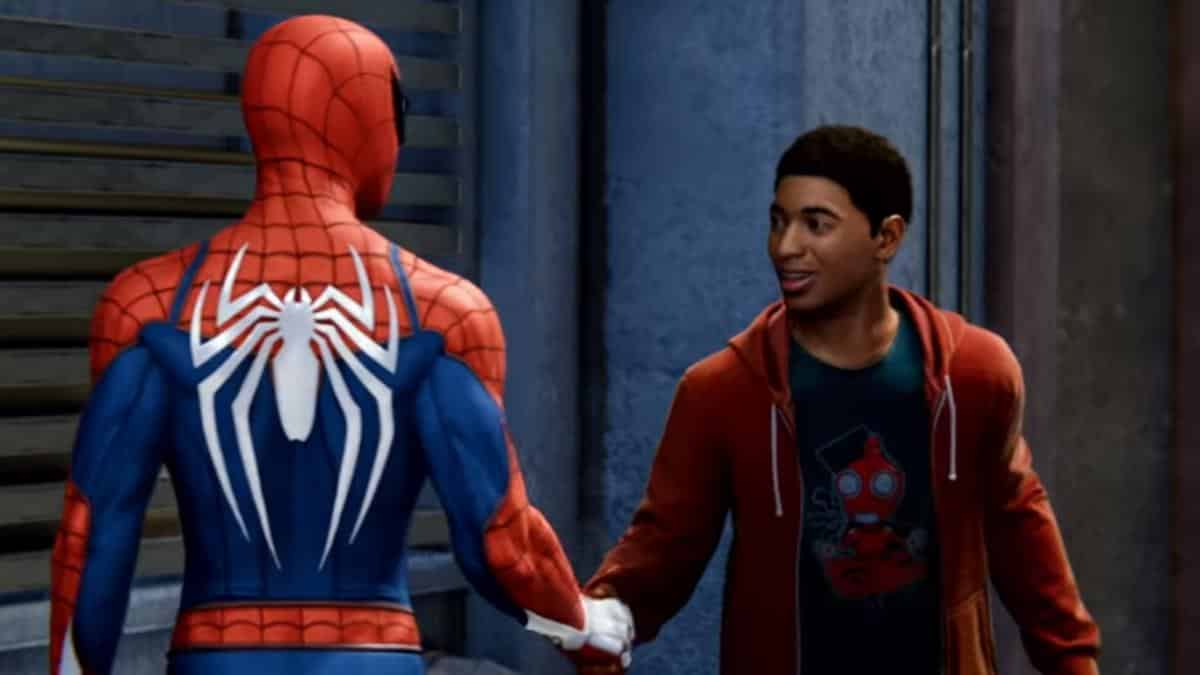If there’s one major difference between Insomniac’s Spider-Man and the other current iterations on the market, it’s maturity. Across their first two games in what’s quickly becoming a franchise, we’ve helped Peter Parker and Miles Morales both grow up in ways most takes on each character have been leery to explore. These aren’t simply morality plays about how far men can fall and the need for responsibility, but why we have to be responsible. It’s in this regard that Spider-Man: Miles Morales forms a complete whole that answers the questions left hanging by its predecessor, Marvel’s Spider-Man.
By the end of the first game, Peter Parker’s biggest heroes, his new father figures in the place of Uncle Ben, have both twisted themselves in pursuit of their own brands of justice. In order to uphold what he believes is right, Peter loses just about everything, sacrificing his own wants and needs for the betterment of everyone else. Because by that point in his eight-year long career, Peter’s figured out the basics and knows how to be a hero. However, for the first time since Uncle Ben’s death, he has to ask himself, “Why am I still doing this?”
If you ask Marvel’s Spider-Man, the answer is “Because someone has to!” yet Miles Morales takes a different approach. It’s not simply about responsibility, but rather that Spider-Man is part of something bigger — he’s a part of the heart and soul of New York City. While Miles’ journey is focused on Harlem, it hammers home that Spider-Man isn’t just some vigilante everyone whispers about. There are murals dedicated to him. People aren’t even fazed when they see Spider-Man show up and save the day or just get some food from a bodega.

A great Spider-Man can be anyone — it’s their moral character, expressed through their actions, that defines them. Miles Morales doubles down on this by repeatedly tempting Miles with a way out. It’s almost biblical how every escape is offered to him. He could easily have chosen a side, either giving in to his anger and standing by the Tinkerer’s crusade against Roxxon or setting the Tinkerer up to be captured so he can wash his hands of the problem immediately. Or there’s always standing back completely, like his uncle encourages him to do. Roxxon and Tinkerer are more than equipped to neutralize each other. Peter even offers to fly back to New York, ready to abandon his work trip if Miles needs. Instead, Miles doggedly insists on doing what’s right.
It’s not that Miles is thrust into this conflict like Peter was. Only by actively pursuing Tinkerer’s Underground and allegations made of Roxxon’s illicit dealings does Miles end up in the crossfire. Miles’ actions are more than responsibility; they’re an implicit desire to be Spider-Man. While, yes, things would’ve gone poorly one way or another if Miles didn’t intervene, his aid is neither welcomed nor supported. Where Peter has everyone rooting for him, pushing him to fight on, Miles has to earn the respect and support of Harlem over the course of the game. Just doing good things out of guilt isn’t enough — it’s compassion and earnest dedication that make Miles soar where Peter still struggled.
Some of the tasks Miles takes on to win Harlem over aren’t amazing; heck, a few are fairly mundane. He does it gladly though, because that’s the sort of person Miles chooses to be. Peter’s guilt will drive him no matter how bad things get — his heroism comes more from trying to make up for the moral failure that led to Uncle Ben’s death than anything else. While Miles does mourn his father, Jefferson didn’t die because of Miles’ actions; in fact, he died because of working with Peter. Even knowing this, Miles finds inspiration in rising to that ideal — to do the best he can, regardless of if it earns him glory. That agency over the course he takes in life is a crucial message in today’s world, where many feel disempowered, especially in black communities finally getting heroes like Miles in mainstream media.

This cements the distinctly different conclusions to each game. While both are multi-stage superpowered boss fights, Peter and Octavius are clearly developing into tragic rivals, each driven by their convictions, while Miles is still holding out hope for Tinkerer to see the error of her ways. When Peter is fighting back tears, Miles stands defiantly hopeful, reaching out to her until the end. And unlike Peter, Miles succeeds not only in protecting the city, but redeeming Tinkerer.
Where Norman Osborn walked off relatively scot-free, Roxxon suffered a massive blow to its PR, pulling out of New York entirely. As new threats loom for Peter, Miles reaches new heights, fully realizing who he is both with and under the mask. The two stories build off of each other, exploring both sides of a similar journey. Rather than just a midquel to buy the series time till the next mainline release, Miles Morales is a proper sequel, addressing the lingering doubts of its predecessor while establishing hints of a new challenge to come. It’s the exact epilogue Marvel’s Spider-Man needed and leaves one curious as to where the series will go with its themes with Norman’s latest scheme looming on the horizon.
